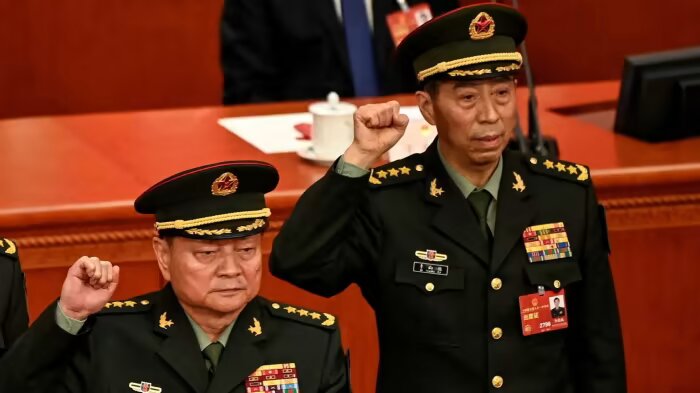General Li Shangfu, who was just named China’s new Defense Minister, will visit India for the first time in April. This will be the first high-level military visit from China since the Line of Actual Control (LAC) crisis began in 2020. Separately, External Affairs Minister S. Jaishankar said at an event on Thursday that resolving the standoff in eastern Ladakh is “work in progress” and that the military and diplomacy have made progress in the last three years by working together.
General Li, who is also a member of the State Council, is likely to show up in person at the SCO Defense Ministers’ meeting in April. Wang Xiaohong, China’s Minister of Public Security and State Councillor, didn’t go to this week’s meeting of the SCO National Security Advisers in person. Instead, he was there in spirit.
India and China are also thinking about having a meeting between the two countries’ defense ministers during the visit. This would be the first meeting between the two countries’ defense ministers since Rajnath Singh and General Li’s predecessor, General Wei Fenghe, met in Moscow in September 2020 on the sidelines of a meeting of SCO defense ministers.
General Li is China’s first Defense Minister who has worked in the aerospace industry. He has also worked in the PLA’s equipment development department. The U.S. put restrictions on him because China bought the S-400 missile defense system from Russia. His appointment by President Xi Jinping shows how important modernizing the PLA is right now. General Li has been given the job of leading this effort.
LAC stand-off
India and China are still talking about how to stop fighting in the last two of the seven trouble spots, Demchok and Depsang. They have already reached agreements in Galwan Valley, Pangong Tso, Gogra, and Hot Springs. Corps Commanders from the two countries have met 17 times so far to try to end the standoff along the Line of Actual Control (LAC) in eastern Ladakh. India says that there are still two more areas, Depsang and Demchok, that need to be settled. China, on the other hand, says that the disengagement is complete and that the other two areas of disagreement happened before the stand-off.
Shilpak Ambule, the Joint Secretary for East Asia in the Ministry of External Affairs (MEA), met with senior Chinese border officials in Beijing in February. This was the first face-to-face meeting of the Working Mechanism for Consultation and Coordination on India-China Border Affairs (WMCC) since July 2019. According to statements released after the talks, both sides talked about ways to stop fighting in the two remaining trouble spots along the LAC in order to “restore normalcy” in their relationships.
They also agreed to hold the next round of Corps Commander’s talks, which are likely to happen soon since the National People’s Congress in Beijing ended on March 13 and new officials, including General Li, were appointed.
PLA Senior Colonel Tan Kefei, a spokesperson for China’s Ministry of National Defence, said at a monthly press briefing in Beijing on Thursday that a working group from the Ministry “recently visited India to participate in meetings among the international military cooperation departments under the Defence Ministries of SCO member states.” They “elaborated the Global Security Initiative in depth,” he said, referring to Mr. Xi’s new security initiative.
“Middle to late March, the Chinese side also sent delegates to India to attend the SCO Workshop on Humanitarian Assistance and Disaster Relief (HADR) and the SCO Think Tank Exchange on Military Health and Medicine. They also took part in the Expert Working Group (EWG) of the Meeting of the Council of Defence Ministers of the SCO member states through a video link,” he said. During these meetings, the Chinese delegates talked with the other participants for a long time and in depth. This greatly improved trust and coordination between the parties, a spokesperson said.
“In the next stage, China is willing to work with the defense departments and militaries of all SCO member states to vigorously promote the “Shanghai Spirit” and to continue to speed up practical cooperation in high-level exchanges, education and training, military inspections, and other areas, helping to build a closer SCO community with a shared future,” he said.
“Rising India” summit, Mr. Jaishankar said that the standoff is still “unfinished work” that needs to be solved. “There are places where we send troops out in front. We’re still working on it,” he said.
He said that in the last two or three years, the military has done what the military should do, and the military and diplomacy have worked together. He said that the military commanders have never been given full control over the issue. “The commanders of the military and the diplomats work together… “In the last three years, the military and diplomacy have worked together to make progress,” said the External Affairs Minister. He also said that the two sides had not been able to solve all of their problems, but that they would keep trying.
“We talked about it when I met the new Chinese Foreign Minister, Qin Gang, outside of the G-20. It’s still being worked on, and I’d like to see more progress,” he said.
